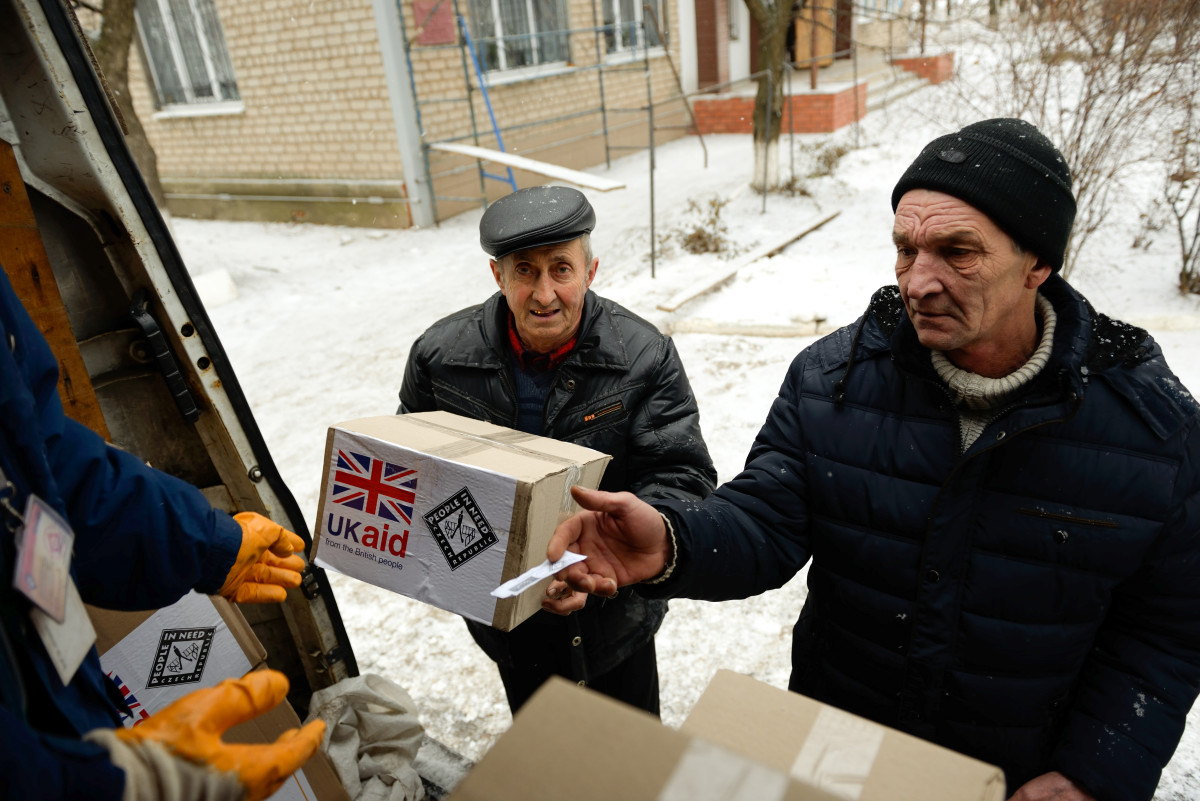Ukraine – Civilians need protection and access to the humanitarian aid
Published: Jan 23, 2017 Reading time: 3 minutes Share: Share an article“Nearly 4 million people are still suffering due to the ongoing war in eastern Ukraine”: this is the major call of the conference “Ukraine – the Human Face of the Eastern Conflict”, co-organized in Brussels today by humanitarian NGOs active for the populations concerned, Action contre la Faim (ACF), the Danish Refugee Council (DRC), the Norwegian Refugee Council (NRC) and People In Need (PIN). Protection, assistance and access are the main concerns since the conflict turned emergency needs into structural issues.

Last month, the United Nations and its partners launched a new action plan, including a call for $214 million to provide aid to 3.8 million people, the majority living in eastern Ukraine: in 2016 only 30% of the funds requested were received. “The international politics surrounding the crisis in Ukraine always makes the headlines, but last year the international aid plan received only a third of the money needed to help the people suffering from the fighting. We call on the EU and international governments to work together to make sure that in 2017 the people in eastern Ukraine are not forgotten” said Krista Zongolowicz from DRC.
Yet the conference highlighted that it’s not just about the money: too often aid is blocked from reaching the people who need it the most. Ongoing fighting and government red-tape hinder aid organisations from reaching people on the frontline, and in non-government controlled areas only very limited humanitarian actors are allowed to operate.
On the long-term, Aid only will not help the populations, which essentially need a political resolution of the conflict and access to basic services and livelihoods and markets. While the Ukrainian Government took positive steps with the creation of the Ministry of Temporary Occupied Territories and IDPs, some of the legislation continues to ban commercial trade across the frontline, affecting livelihood of civilians.
 “The fighting and only a handful of crossing points also stop the movement of people. Furthermore, the elderly – 60% of those still living in NGCA – have to cross the frontline to get their pensions, and people living in the main cities in NGCA can’t pay their water bills from companies on the other side.” said Vanessa Merlet from PIN.
“The fighting and only a handful of crossing points also stop the movement of people. Furthermore, the elderly – 60% of those still living in NGCA – have to cross the frontline to get their pensions, and people living in the main cities in NGCA can’t pay their water bills from companies on the other side.” said Vanessa Merlet from PIN.
Speakers at the conference described how ordinary people have been killed in the fighting, including artillery shells hitting homes and even a crossing point. “The number one priority must be for all the international community to put pressure on the warring parties to protect civilians and respect human rights and international humanitarian law” said Antoine Terrien from ACF.
“For us, the conflict is about the babushka – the grandmother – stuck in her village on the frontline, her children gone, unable to get her pension or pay her heating and water bills. This is the face of the conflict. But who is thinking about her when sitting at the table in the high-level international meetings on Ukraine?” asked Eric Fort from ACF. “Efforts from the European Union and the concerned States, at both the country level and global level, must be strengthened, with priority to humanitarian access and protection of civilians from the harm of the conflict. ”
Note to the Editor:
The conference took place on 23 January in Brussels and was organised by Action contre la Faim, Danish Refugee Council, Norwegian Refugee Council and People In Need, non-governmental organisations providing humanitarian aid in Ukraine. The conference was generously sponsored by the European Commission's Humanitarian Aid and Civil Protection Department.
For further information and to arrange an interview please contact:
Danish Refugee Council: Yuliya Hudoshnyk; yuliya.hudoshnyk@drc-ukraine.org
Action Contre la Faim: Karima Zanifi; kzanifi@actioncontrelafaim.org
Norwegian Refugee Council: Tatiana Stepykina tatiana.stepykina@nrc.no
People In Need: Petr Stefan; petr.stefan@peopleinneed.cz



